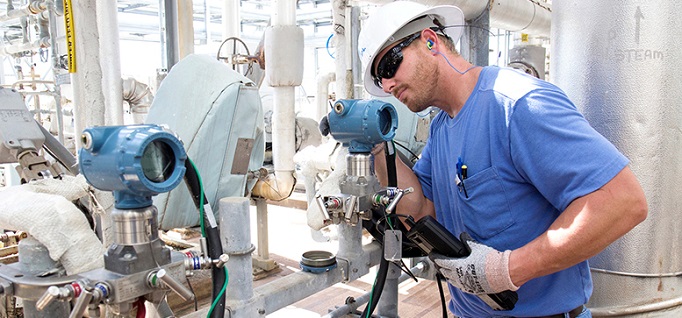Changing climate of energy education
By Ed Finkel
April 7, 2021
Community colleges retool curriculum to meet clean energy workforce needs
Climate-related disasters like hurricanes, wildfires or the extreme cold that took down most of Texas’ electrical grid last month present challenges for energy-related companies and, relatedly, the community colleges who train their future workforce.
The Biden administration’s 13-figure infrastructure spending proposals, which have yet to take legislative form but seem likely to contain significant investments in energy-related infrastructure aimed at combating the effects of climate change, will require two-year schools to tweak and retool their programs as needed to produce solutions to those challenges.
“From increasing enrollment due to new employment opportunities, to incorporating advances in technology into the curriculum, community colleges are well-positioned to meet current and future clean energy workforce needs,” said Jeffrey Rafn, president of Northeast Wisconsin Technical College (NWTC), based in Green Bay, and home of the Great Lakes Energy Education Center, a learning facility designed for zero-net energy.
The Biden proposal, aimed to reduce carbon emissions and build green infrastructure, could include specific spending on energy-efficient buildings, green transit, electric vehicle charging stations, upgrades to the electric grid and the power sector generally, and climate-related research and development into products such as electric vehicle batteries. The end goal: 10 million clean energy jobs, along with a carbon-free power sector by 2035 and net-zero greenhouse gas emissions by 2050.
If anything like the current proposal passes, “It will have a significant effect on the number of educated people who will be needed in these areas,” said Amy Kox, dean of trades and engineering technologies at NWTC, who previously served as associate dean for energy programs. “Solar, and wind, and renewable energy pieces, which is what people think about the most, need infrastructure there to support them. Running the electrical, from generation to the business or home, needs to be there as well. It will affect the entire energy workforce in its implementation.”
Kevin Cooper, dean of advanced technology at Indian River State College in Fort Pierce, Florida, agrees that the package would be transformative.
“The federal package is going to put a lot of incentive to move to renewables,” he said. “Coal workers and some traditional fossil fuel workers will be out of work, and we’re going to have to add other elements to their skillset, so they can get back up to speed quickly. Colleges across the country are going to need quick-response training: What puts a student to work quickly, but still leads to a degree?”
Ready to roll
Although Louisiana hasn’t experienced anything quite like the Texas power outages on a statewide level, hurricanes and tropical storms pound the state every year, underscoring the importance of programs like the electrical lineworker track at South Louisiana Community College (SLCC), said Jermaine Ford, vice president, workforce and economic development.
“Look what happened when we had Hurricane Delta back in October – we had some regions hit very, very hard. Some of them are still getting back up,” he said. “They’re [electrical linemen] the first crew to go out when a natural disaster strikes. It’s very dangerous conditions that these men and women are going into to get power restored. … I’m proud of the utility companies here in Louisiana that have been able to get power restored very quickly.”
“That is the workforce we’re training,” Kox said of disasters like the Texas power outages. “When things like that happen, whether to an existing infrastructure system or because of a hurricane, these are the folks that come in and make sure your power is on, and you have heat and cooling. I don’t know if there’s much more essential of a workforce description than that.”
Indian River, in the midst of starting a lineworker program of its own, sees the need to create more resilient, cleaner, sustainable micro-grids that lower bills and can more easily offset peak loads to guard against outages, Cooper said.
“What’s needed in that workforce base is a different skill set than currently exists,” he said.
There’s more to the story! Read the full article in CC Daily.



